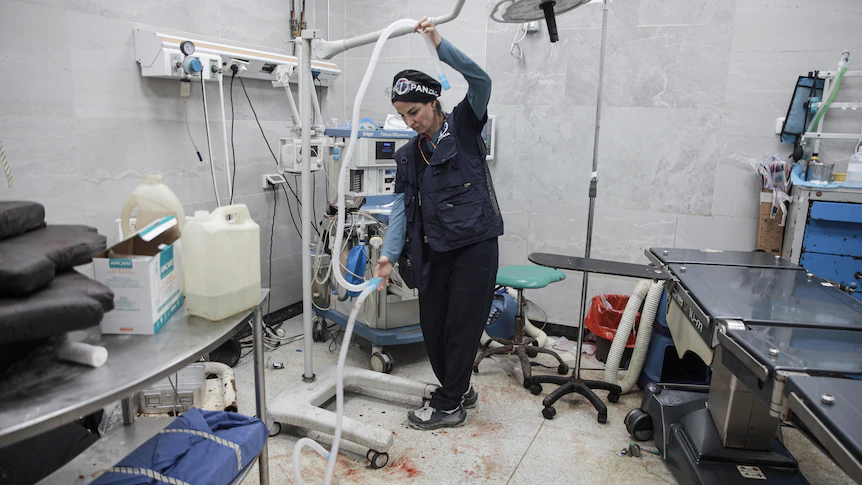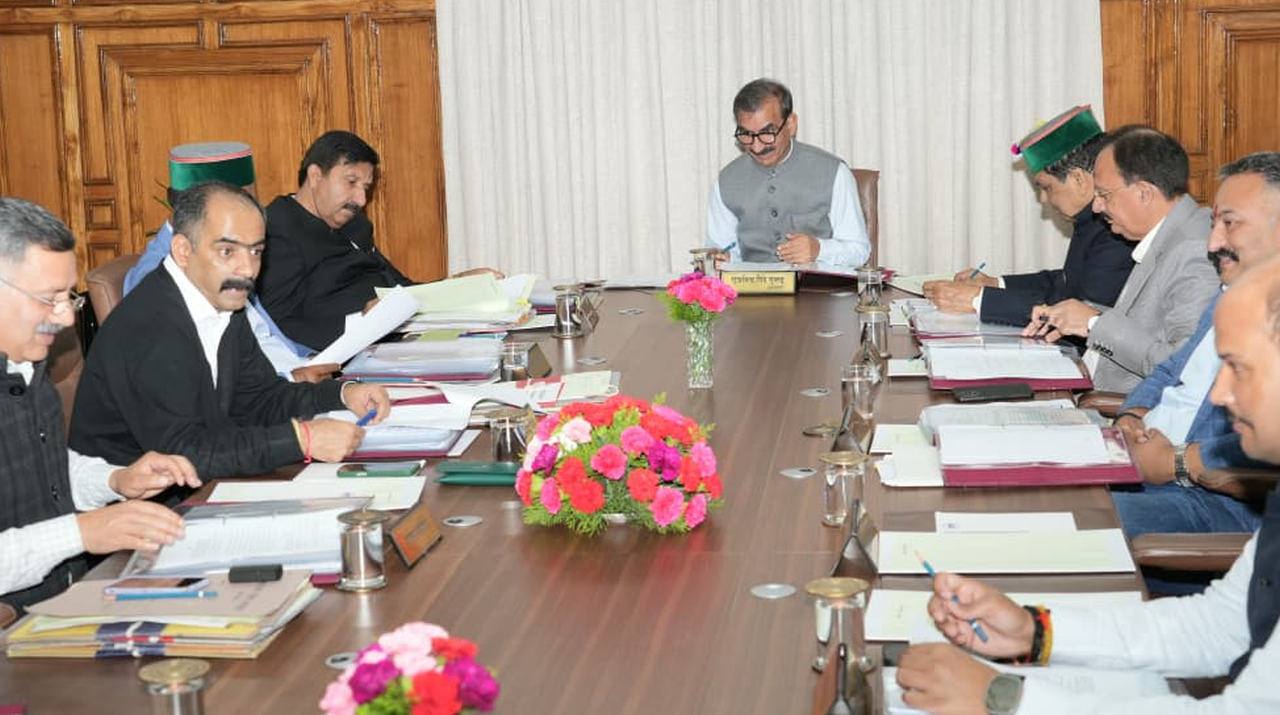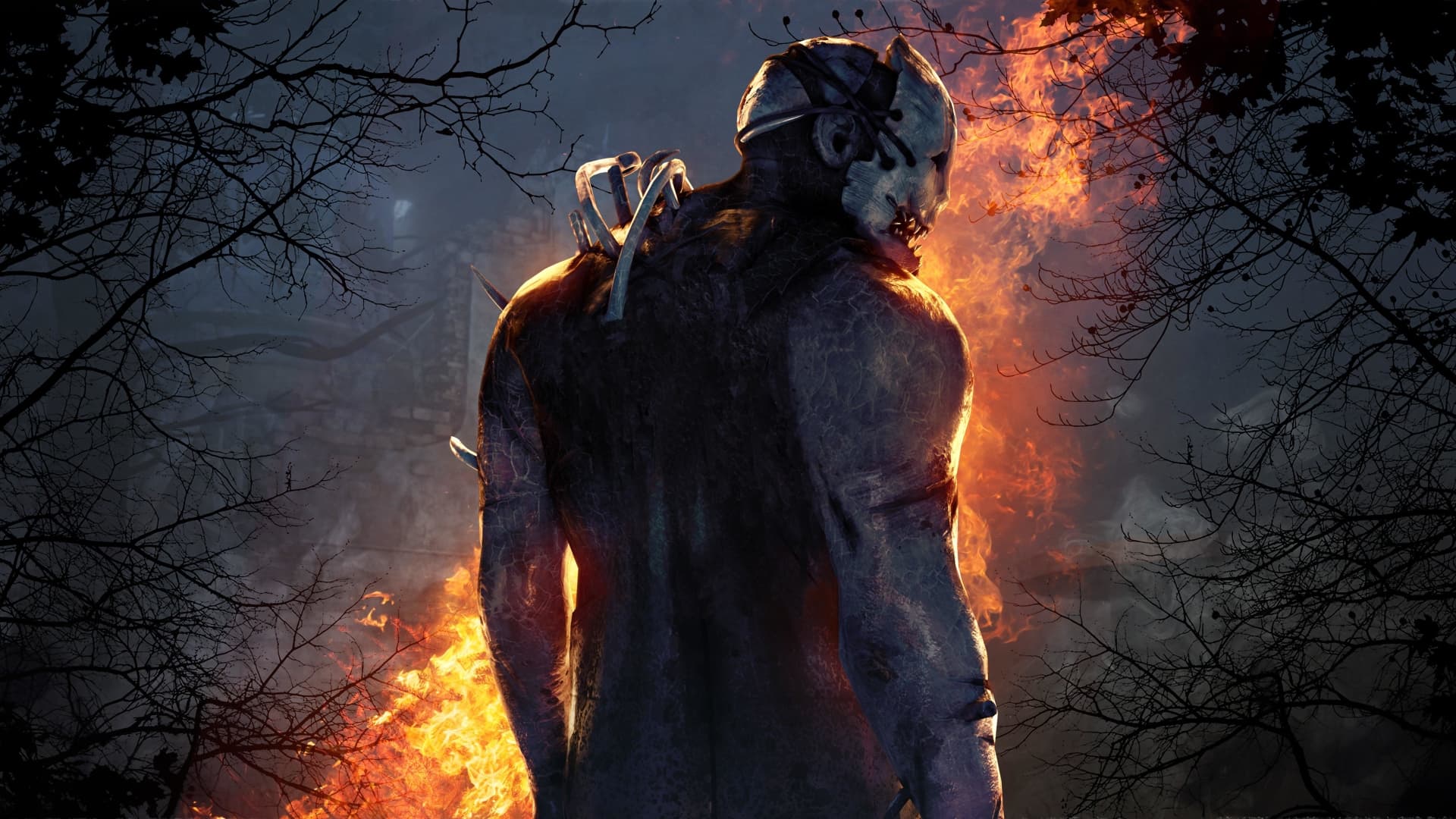By Chantelle Al-Khouri,Matthew Doran
Copyright abc

In a crowded emergency ward in Gaza City, a young boy, barely 10 years old, is rushed in by his relatives.
Warning: This story contains details and images that readers may find distressing.
There are no beds, so Alaa is laid on a metal frame with thin fabric straps. His face is covered with his own blood and his breathing is shallow.
As the screams of other patients and families echo around him, the calm but firm voice of Doctor Nada Abu Al-Rub cuts through the din.
The Australian carefully washes the face of the boy, who is believed to be a victim of an Israeli bombing nearby, before providing him with what little medications the hospital has at hand.
A man, perhaps his father, with his T-shirt drenched in young boy’s blood, weeps nearby.
He repeats a phrase from the Qur’an over and over again — “I entrust my affair to Allah” — expressing a familiar sentiment of Palestinians submitting their destiny into the hands of God.
“I don’t think anyone could believe how inhuman and horrific the scenes are from those kinds of weapons, and the type of injuries that we have to deal with,” Dr Abu Al-Rub told the ABC from Al-Shifa Hospital.
“You have to pick the cases that have a chance for survival, and we act on them first.
‘Nightmare’ situation in Al-Shifa
As Israel’s offensive in Gaza City intensifies, hospitals such as Al-Shifa are overrun.
Dr Abu Al-Rub and fellow Australian Dr Saya Aziz are among volunteers from PANZMA, the Palestinian Australian New Zealand Medical Association, desperately trying to help in Gaza.
But they are finding their resolve tested by the scale of the task before them.
“Kids have to see their parents shred into pieces,” Dr Abu Al-Rub said.
Last week, a United Nations Commision of Inquiry said Israel’s conduct in Gaza amounted to an ongoing genocide — the latest in a string of allegations that the Israel Defense Forces (IDF) and the Netanyahu government’s actions in the strip have gone beyond targeting Hamas in response to the deadly October 7, 2023 attacks.
About 1,200 people were killed and 250 taken hostage in the initial attack, and 48 Israelis remain captive in Gaza. More than 65,000 Palestinians have been killed in the two years since, according to Palestinian health authorities.
Israel has rejected allegations of war crimes and says its actions — including its ground offensive to occupy Gaza City — are aimed at eliminating Hamas.
But doctors say the large number of civilians pouring through the doors of hospitals is evidence of indiscriminate strikes.
Al-Shifa, the largest hospital in Gaza City, is gravely compromised after two years of war.
“We have now more than 1,500 bodies under the rubble at the hospital ground,” Dr Abu Al-Rub said.
“There’s no doctor that I met that hasn’t lost a couple of family members, that hasn’t lost completely their house, that haven’t evacuated more than one time.
“They all live in the hospital and work 24-seven, with only one sporadic hour rest here and there.”
Israel has demanded that the hospital be evacuated and patients moved south, despite warnings from authorities that it would be impossible.
Dr Abu Al-Rub and Dr Aziz — like many volunteer doctors who have served in Gaza during the war — are becoming unofficial correspondents, given international media are not allowed into the strip to document the war.
The pair shared a video on social media, warning their dispatches from Al-Shifa could be their last.
“It’s a nightmare,” Dr Abu Al-Rub said.
Hospital soaked in blood
Dr Aziz showed the ABC the parlous state of a surgical theatre in Al-Shifa, which was operating around the clock.
A lack of basic supplies in the hospital means equipment, soaked in blood, has to be reused over and over again.
“Would you ever dream of taking your patient into a theatre like this?” Dr Aziz asked.
“This is the quality of the blood pressure cuff — no-one’s going to clean it because there’s nothing to clean it with.
“There’s not even gauze to clean it with; this is the level of sterility.”
The anaesthetist had just taken part in a complex double leg amputation.
“Before I put him off to sleep and to resuscitate him, he asked were his children still alive,” Dr Aziz said.
“I don’t know. I don’t know if they’re still alive.
“I have seen so many amputations now, I have lost count — I’ve actually lost track of how much I’ve done.”
Dr Aziz said treating children was particularly upsetting.
“As a mother of young children, I’ve left them behind, but I know they’re safe — they’ve got shelter, food, water,” she said.
“These children have lost everything … children have lost every family member.
“How is this person going to survive? Who’s gonna look after them?”
Rubble and recognition
The scenes faced by Dr Aziz, Dr Abu Al-Rub, other international doctors, and their Palestinian colleagues are set against a backdrop of an intensified Israeli bombardment in Gaza City.
“It feels so sad when I see my colleagues showing me the photos of how it was before, a beautiful coastal town,” Dr Abu Al-Rub said.
The expanded campaign in Gaza City also comes as more countries, including Australia, formally recognise Palestinian statehood.
Dr Aziz said more needed to be done to make a difference on the ground, and bring the war to an end.
“Enough is enough — Palestine doesn’t need to be recognised,” she said.
“It existed before Westerners decided it needs to be recognised.
“It exists and will always exist.”
Despite the traumatic scenes she was faced with, Dr Aziz remarked on the spirit of her Palestinian colleagues.
“Gaza can be saved, they have faith and belief in their abilities, and they have a strong community,” she said.



